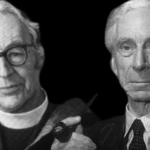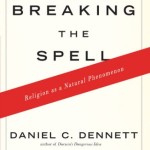How Proofs for God Lead to Divine Simplicity
by Dr. Dennis Bonnette
Filed under God's Nature, The Existence of God

According to the First Vatican Council, the existence of God can be known with certainty by the natural light of human reason through those things that have been created. (De Fide)1 Pope Pius X specified this statement more exactly by affirming that God’s existence can be known “as a cause is known with certainty through its effects, from those things that have been made, that is, by the visible works of creation….” (Sententia fidei proxima).2
Since every being must have a sufficient reason for its being or coming-to-be, an effect is properly defined as any being whose sufficient reason is not totally within itself. To the extent that a being fails to fully explain itself, some other being must be posited which supplies that reason which remains unexplained by the effect. That extrinsic sufficient reason is called a “cause.” Thus, while every cause is a sufficient reason, not every sufficient reason is a cause. God is his own sufficient reason, but it would be absurd to say that he is his own cause.
Since all human knowledge begins in sensation, it is reasonable that all proofs for God’s existence must begin with data taken from sensible creation. This starting point is then shown to be an effect of a cause – with a possible chain of intermediary causes leading back to an uncaused first cause, which can subsequently be demonstrated to be God.
Efficient Causality in St. Thomas' First Way
While St. Thomas Aquinas’ famous five ways to prove God’s existence, as presented in his Summa Theologiae,3 employ more than just the efficient, or making, cause (for example, the fifth way is clearly focused on the final cause), demonstration of God’s absolute simplicity can be accomplished by focusing exclusively on efficient causality.
The first way begins with the observation that “it is certain and most evident to the senses that some things are in motion.” As has been proven in an earlier article, “whatever is in motion must be being moved by another.” That “other” is a cause of motion or coming-to-be (causa fieri), which cause may be either an efficient, or making, cause – or, it may be a final cause. While modern readers of the argument from motion quite naturally tend to think of the movers as efficient causes of motion, it may come as a surprise to some to learn that Aristotle had in mind also final causes – so that his unmoved first mover moves things in motion by means of attraction, not efficient causality.
The modern understanding of causality as it takes place in motion tends to be influenced by David Hume -- so as to think of it as sequences of “events” in which prior ones causally influence subsequent ones. But, such “causality” does not meet metaphysical criteria, since a delay of even a nanosecond between cause and effect would entail that the cause might be non-existent by the time the effect is produced. Clearly, an effect, which is deriving some existential perfection from an efficient cause, cannot be receiving it from a non-existent cause. Hence, the cause as causing and the effect as being effected must be simultaneous. Thus, efficient causes of motion must be simultaneous with the motion they cause in another.
In both the first and second ways, St. Thomas affirms the principle that there can be no infinite regress among intermediate causes, which is evident in that no intermediate cause is a fully sufficient reason for its own effect, which is the reason it is called an “intermediate cause.” Were all causes intermediate, then, regardless of number, the complete sufficient reason for the final effect would never be fulfilled – which is impossible. The impossibility of an infinite regression among proper causes has also been demonstrated in an earlier article.
Moreover, motion entails the production of “new existence” with respect to the thing being moved, so that it is not merely “motion” that the unmoved first mover causes, but the very existence of the new perfections of existence manifested by any change in being. The unmoved first mover is an efficient cause of new existence in all things in motion, even if that new existence is merely in the order of accidental being in the Aristotelian sense. The need for a “universal donor” of new existence has also been demonstrated in an earlier article.
Moreover, potency is what is able to be, but is not; act is what actually exists. Thus, motion is the progressive actualization of potency. Since things in motion must be moved by another, and since no infinite regress of moved movers is possible, there must be a first mover in which no motion occurs. But the total absence of motion means that the unmoved first mover acts to cause motion, and yet has itself no potency being progressively actualized, that is, it is pure act as the efficient cause of motion in things.
This unmoved first mover must also the “universal donor” of new existence, since both entities have the identically same role in accounting for the coming-to-be of all the new existence manifested through motion in the world.
Efficient Causality in the Second and Third Ways
While the first way deals with causes of coming-to-be (causa fieri), the second way deals with causes of being (causa esse). Since modern physics tends to challenge the simultaneity of macroscopic examples of such causation, suffice it to point out that (1) unless simultaneity existed in causes of motion, no motion could occur, since a “past” mover cannot “presently” move something, and (2) it is possible that the second way immediately enters the metaphysical order with causes that sustain existence which immediately transcend the physical order. As shown in a previous article, the very existence of the cosmos requires an infinitely powerful Creator.
Whether we consider efficient causes of coming-to-be or of being, it really does not matter, since what is absolutely evident is that, unless causes exert causation through immediate and direct influence on the effect, no effect can be produced at all – for the same reason that an effect needs a cause in the first place, namely, an existential need in the effect must be met here and now by an actually acting cause.
In a proof for the eternity of God that is found in his Summa Contra Gentiles, St. Thomas takes as his starting point things whose existence or non-existence is possible. He argues, “But what can be has a cause because, since it is equally related to two contraries, namely, being and non-being, it must be, if existence accrues to it, that this is from some cause.”4
The third way of the Summa Theologiae is far too complex to treat in detail here, but I have explained it more fully elsewhere.5 It is not an argument from the contingent to the necessary, as it is so often mischaracterized, but rather an argument from the possible and necessary to being per se necessary. Using the notion of the possibles as expressed in the Contra Gentiles, it is evident that not all beings can be merely possible beings, since possible beings are caused beings and no infinite regress among proper causes is possible, as has been shown. There must be an uncaused first cause in any regression of possible beings, and that first cause cannot itself be another possible being, since all possible beings are caused.
Hence, some being must exist whose existence is not merely possible to be or not be, but rather must necessarily exist. St.Thomas then traces from necessary beings that receive their necessity from another to that being which is necessary through itself, namely, God – again, since “it is impossible that one should proceed to infinity in necessary things which have a cause of their necessity, as has been already proved in regard to efficient causes.”6 This necessary being must account, not only for its own necessary existence, but also for the existence of all other things – both necessary and possible, as defined in the third way.
All of the above has been intended simply to show that some of the classical proofs for God’s existence demonstrate that an uncaused first cause must exist and, as St.Thomas observes, that that first cause fulfills the nominal definition of the classical meaning of God. Moreover, this first cause must cause the very existence of the cosmos – in both the substantial and accidental orders.
Just how well this uncaused first cause fulfills the classical definition of God depends upon our understanding of its nature.
Proof of Divine Simplicity
The purpose of this paper is to determine whether the first cause meets one of the essential attributes of the classical meaning of God, namely, the divine simplicity. Divine simplicity means that God is not composed of parts, principles, or things.
The critical importance of establishing that God is the absolutely first cause, not only of the coming-to-be of things, but of their very existence, is that being a first cause of existence precludes any form of composition in God.
St. Thomas makes two clear points here. First, God is truly and absolutely simple “because every composite is posterior to its component parts, and is dependent on them; but God is the first being” and second, “because every composite has a cause -- for things in themselves different cannot unite unless something causes them to unite. But God is uncaused, … since he is the first efficient cause.”7
As the first efficient cause, God can have no prior cause to combine any principles, parts, or things in order to make him a composite whole. Since a composite presupposes the prior component parts that make it up, the composite would then depend on those prior parts. God, as absolutely first cause, can depend on nothing prior to himself. Hence, he cannot be a composite of any type.
Again, any composite requires some principle of unity. If that principle comes from without, then the composite cannot be the first cause, since something is prior to it. If either component part accounts for its correlative component part, then they cannot be distinct parts – since nothing can give what it does not have – in which case there would be no composition, but only identity.
Moreover, what is composite is made up of diverse components, and diverse things can only be united by some causal agency. But, God, as the first cause, has no cause. Therefore, composition in God is impossible.
Meaning of Divine Simplicity
This means that God cannot be a composite of any potential principle and active principle, such as primary matter and substantial form, or substance and accident, or essence and existence.
The deepest truth about divine simplicity is that in God essence and existence are identical. God cannot have an essence to which is added existence, for whatever is found in anything either flows from its essence or comes to it from some extrinsic cause.8 But God is the first cause, and so, his existence cannot come from some extrinsic cause. The only alternative is that his existence comes from his very essence. But nothing can give what it does not have. Therefore God’s essence must already contain its very existence. His essence is identical with his existence. This is as simple as any being can be, since in all created things, existence is caused – meaning that existence is something added to essence. But in God this is not the case. He simply is his own act of existence.
God is a pure act of existence – infinite in virtue of that act being received and limited by no essence – Pure Act limited by nothing at all. Pure Existence limited by nothing constitutes the Infinite Being.
This means that God is not composed of form and matter. Hence, he is not a material body. In him, there can be no composition of substance and accident. Whereas in man, will is distinct from substance; in God, they are one. Nor is intellect distinct from substance. But if God’s will and intellect are identical to his substance, then his intellect is also identical to his will. So, too, his acts of willing are identical to the divine substance which is identical to his acts of knowing, making his willing and his knowing to be one and the same.
The various distinctions between substance, faculties, and acts found in man arise because of the composite nature of his being. First, as a creature, we are composed of essence and existence. As a material being, we are composed of substantial form and quantified primary matter. Having accidental qualities that change through time, we are composed of substance and accidents. Our powers are distinct from their operations. And potency is distinct from act in each of these composites.
But, in God -- as the absolutely first cause of all things, who himself is caused by nothing – who is his own sufficient reason for existing and being what he is in every way possible – in the one true God, all these creaturely distinctions are obliterated.
That is the meaning of the divine simplicity: Pure Existence, with no limiting essence and no real distinctions in God between principles, parts, or things.9
There are many other divine attributes, such as God’s perfection, goodness, infinity, immutability, eternity, omniscience, omnipotence, and so forth, which cannot be treated of in this short article, and would therefore be off topic for consideration here.
Related Posts
Notes:
- Denzinger 1806.
- Denzinger 2145.
- Summa Theologiae, I, q. 2, a. 3, c.
- Summa Contra Gentiles, I, ch. 15, para. 5.
- Aquinas’ Proofs for God’s Existence (Martinus-Nijhoff: The Hague, 1972), pp. 127-139.
- Summa Theologiae, I, q. 2, a. 3, c.
- Summa Theologiae, I, q. 3, a. 7, c.
- De Potentia, 10, 4.
- The Catholic dogma of the Trinity allows a distinction of relation to exist between the three divine Persons, but this does not entail a real distinction between principles, parts, or things. Such knowledge of God pertains to sacred theology, not metaphysics or natural theology per se. It is the proper work of the philosopher to show that such relations do not entail any contradictions in being, but that analysis does not belong to the natural knowledge of God, which prescinds from divine revelation.
Note: Our goal is to cultivate serious and respectful dialogue. While it's OK to disagree—even encouraged!—any snarky, offensive, or off-topic comments will be deleted. Before commenting please read the Commenting Rules and Tips. If you're having trouble commenting, read the Commenting Instructions.













